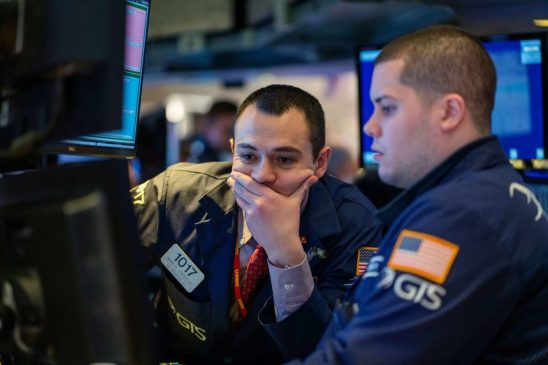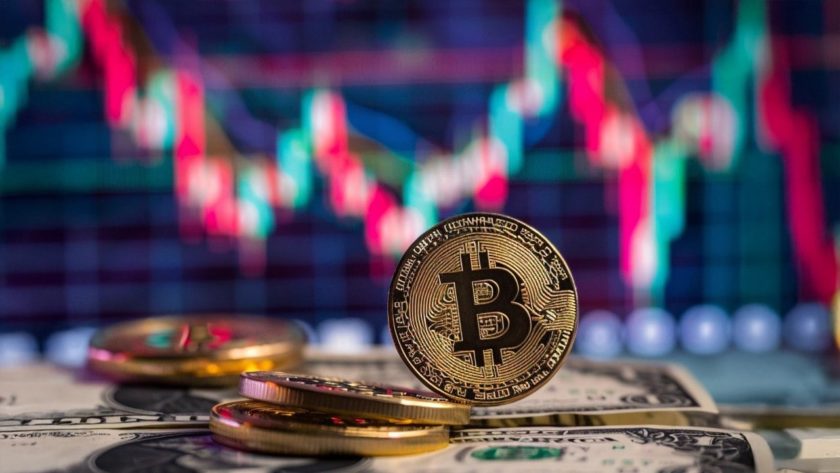- Even the bulls are wary that this stock rally can continue forever.
- While timing a crash is tricky business, analysts say these three signposts could foreshadow a downturn.
- For now, stocks are expected to march higher, but in today’s jittery environment, even the slightest misstep could tip the scales.
We’ve watched the market climb impossibly higher over the past 11 years. In 2019, warnings that a stock market crash was on the horizon were plentiful.
Today, some of Wall Street’s most notable bears have shifted their stance as 2020 continues to push the Dow higher.
Even as expectations grow more positive, analysts have been wary of a looming bubble pop.
FOMO Could Cause the Next Stock Market Crash
The epic rise of Tesla (NASDAQ:TSLA) stock underscores how a new generation of investors is moving the market. The firm’s share price saw an exponential increase this year. Despite worries about Tesla’s inflated valuation, the stock continues to march higher. Why? The Fear Of Missing Out (FOMO).
That’s something Ned Davis Research’s Tim Hayes pointed to in a research note earlier this month. Hayes accurately predicted the stock market’s crash at the end of 2018, and although he is bullish in 2020, he said investors shouldn’t get complacent. The current market looks promising to Hayes, but he says there’s not enough evidence that it can last.
Considering the excessive optimism and stretched valuations, there is currently insufficient confirmation to conclude that equities are off and running into a lasting cyclical bull market.
Tech mega caps Apple, Microsoft and Amazon have all reached valuations above $1 trillion. Investors are rushing into the equities in search of momentum and security. That, Hayes says, is dangerously similar to what happened in 1999 just before the dot-com bubble burst.
For now, Hayes believes that the stock market is stable enough to recommend clients allocate more than half of their portfolio to it. However, he says if those tech power players get further stretched, we could have a bubble on our hands.
Continued concentration would suggest that what’s underpinning the stock market is less an improving macro outlook than ‘FOMO,’ the fear of missing out on the apparently endless ascent of the megacaps.
Valuation is Everything
Wharton Finance Professor Jeremy Siegel has long been a market bull. Nothing about the current market’s run-up has changed his position. But even Siegel admits that investors could be losing sight of what props the market up long-term—valuations.
The Dow briefly made its way toward 30,000 earlier this year, but the index hasn’t been able to hold those gains as coronavirus jitters weigh on confidence. Siegel says the coronavirus has interrupted a market surge this year; he says good news on the virus front will likely propel the Dow above 30,000.
He also cautioned that the market isn’t exactly cheap right now. Siegel believes that the market is trading at 20 times his 2020 earnings predictions, not unreasonable, but not a bargain either.
While he doesn’t believe there’s a stock market crash on the horizon, he did warn investors to pay attention to valuations. Specifically, Seigel pointed to momentum stocks as an area of concern.
Government Stimulus Could Stop a Stock Market Crash, Or Trigger It
There’s no doubt that coronavirus has become a hot button issue on Wall Street. The new virus has disrupted everything from airlines to tech supply chains. The question now is how much of an impact it will have on the global economy.
That’s unclear, but some say it will be larger than expected. Many expect Beijing to step in with more stimulus despite the nation’s efforts to keep from significant central bank support.
Central banks around the world are expected to follow suit with their own measures to prevent a nosedive from the global economy.
China has historically shied away from lowering interest rates to stimulate the economy. But as the coronavirus has put the nation into crisis mode, that could change. Plus, interest rates around the world are already at historically low levels. That means central banks don’t have the same firepower they did when the financial crisis hit.
How central banks, especially the Fed, respond to the coronavirus’ economic impact is critical. Do nothing, and economic growth could grind to a halt. Take interest rates too low, and you’re setting a dangerous liquidity trap that could end with a stock market crash.
Disclaimer: The above should not be considered trading advice from CCN.com. The opinions expressed in this article do not necessarily reflect the views of CCN.com. As of this writing, Laura Hoy was long AAPL and AMZN.
This article was edited by Aaron Weaver, Sam Bourgi.
Last modified: February 18, 2020 6:01 PM UTC




